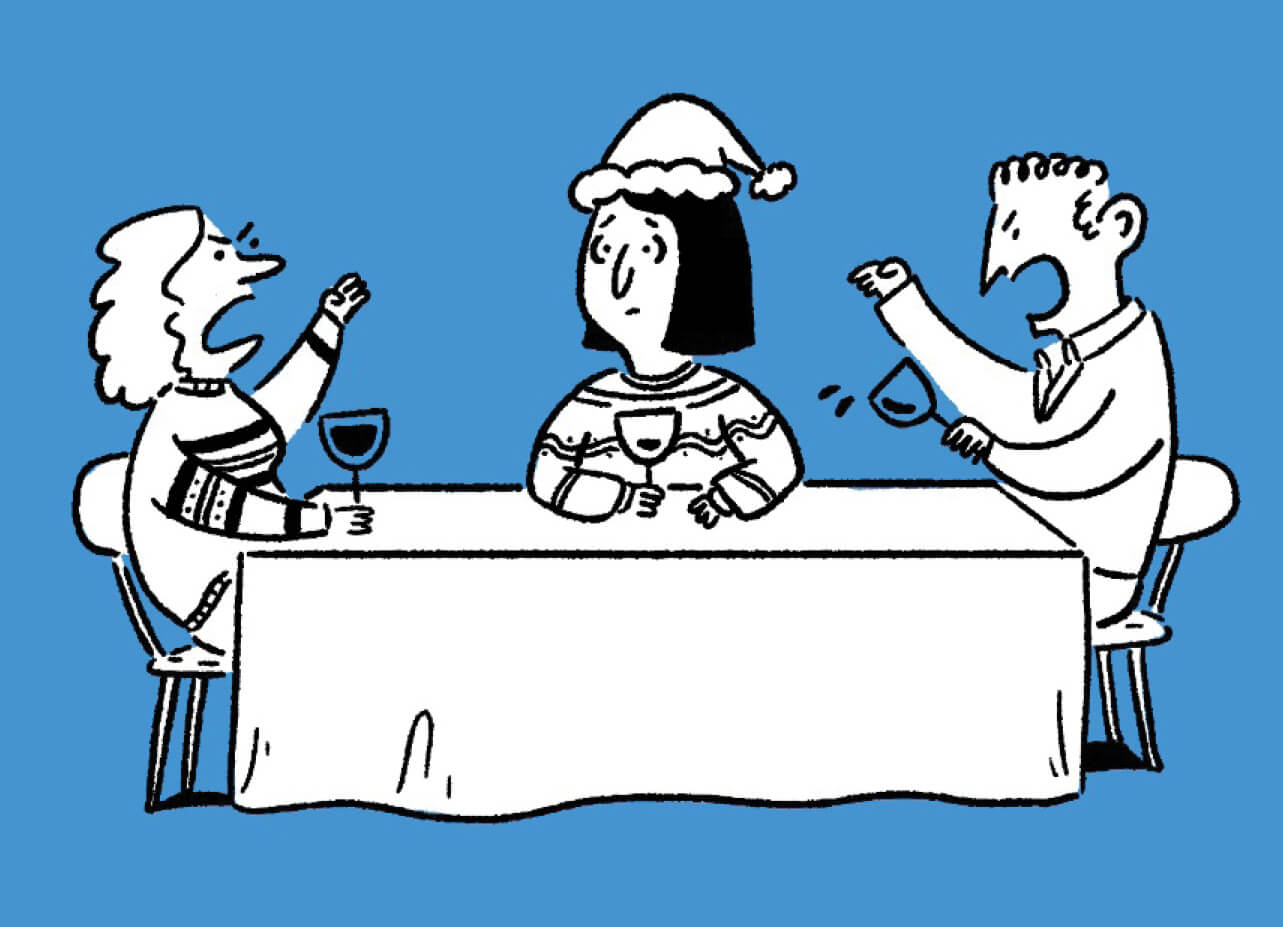Your Health
ASK DR. ADAM
A top internist and cardiologist answers your questions with surprising doctor-tested tips

“How can I keep my blood pressure down over the holidays? It’s borderline high.”
Dr. Adam: Celebrating the holidays with family and friends is important for our emotional well-being. I encourage the millions of Americans who have borderline high, or elevated, blood pressure to go out and have fun, but take some precautions.
To keep blood pressure in check, it’s important to pay attention to lifestyle choices. Making small changes can have a big effect.
Minimizing salt intake is a good example. The American Heart Association recommends older people limit their sodium to no more than 1,500 milligrams a day.
Drinking water helps to move sodium out of the body through the kidneys, so be sure to stay hydrated.
Exercise is another way to keep blood pressure down. I recommend at least 150 minutes per week. Walking is a wonderful activity, especially after a big holiday meal. One recent study found that adding only an additional five minutes of exercise per day to your usual routine is linked to a drop in blood pressure.
When you’re overweight, your heart has to work harder to pump blood through your body. That’s why weight is a strong predictor of high blood pressure. Limiting the amount of sugar and carbs you consume can help keep off those extra pounds. Of course, it’s tough to resist a holiday dessert now and then, but try not to overdo it.
You’ll also want to get enough sleep. Research from the American College of Cardiology found that people who get less than seven hours per night have an increased associated risk of getting high blood pressure.
And alcohol directly affects your blood pressure control. If you’ve had a bit too much one night, you may want to switch to seltzer for the next few evenings.
While stress during the holidays can raise blood pressure, studies show feelings of gratitude not only lower stress levels but also improve blood pressure. May you find a reason to celebrate every day of your life—no matter the season.
“Why am I always so cold?”
Dr. Adam: Several reasons can explain why we’re more likely to feel chilled to the bone as we age.
First, our metabolism slows down. As we burn calories, our bodies generate heat. If our metabolism isn’t running on full blast, we’ll feel colder.
Second, the fat layer under the skin starts to thin as we age. That layer of fat is insulation that works to conserve our body’s heat. The thinner the layer of fat gets, the colder you may feel.
Hands and feet typically feel the coldest. That’s because as we age, our blood vessels lose their elasticity, which reduces the ease of blood flow, especially to our extremities.
Moving our bodies keeps us warmer. Since older folks generally don’t move as quickly, we’re going to get colder, faster.
Some medical conditions—such as diabetes, low thyroid levels (called hypothyroidism), and certain types of heart disease and anemia—can also contribute to our body’s temperature dropping.
And there are some commonly prescribed drugs that can contribute to making you feel chilly. Blood pressure medications, particularly beta-blockers, can make you feel cold because they slow down your heart rate, which may reduce blood flow to your hands and feet.
How can you warm up? Pay attention to your core. In the winter, I wear a thin vest under my suit jacket, and then I wear a coat over that. The layers keep me cozy.
Preparation is important too. Let’s say you know that you’re going to be taking a long walk on a frigid day. Once you’re very cold, it takes a long time to warm up again. If you can, plan for places where you can take a break from the cold before that happens.

Adam B. Rosenbluth, M.D., practices and teaches in New York City. Each Monday online, he answers your questions about how to make your body work better for you.
WANT MORE DR. ADAM?
Go to aarp.org/AskDrAdam
For more advice on living better, go to aarp.org/MembersEdition

Should You Leave a Perfectly Good Marriage?
When you feel your spouse is holding you back aarp.org/InTheMood

Smart Guide to Keeping Your Memory Sharp
Tips for keeping your brain healthy as you age aarp.org/SharpMemory

Ways to Protect Your Online Privacy
How to avoid advertisers from tracking you aarp.org/TechGuru
FROM TOP: CLOCKWISE FROM TOP: JAMES YATES; DELPHINE LEE; PAUL SPELLA (GETTY IMAGES, 2); AARP (GETTY IMAGES, 2); JOHN W. TOMAC